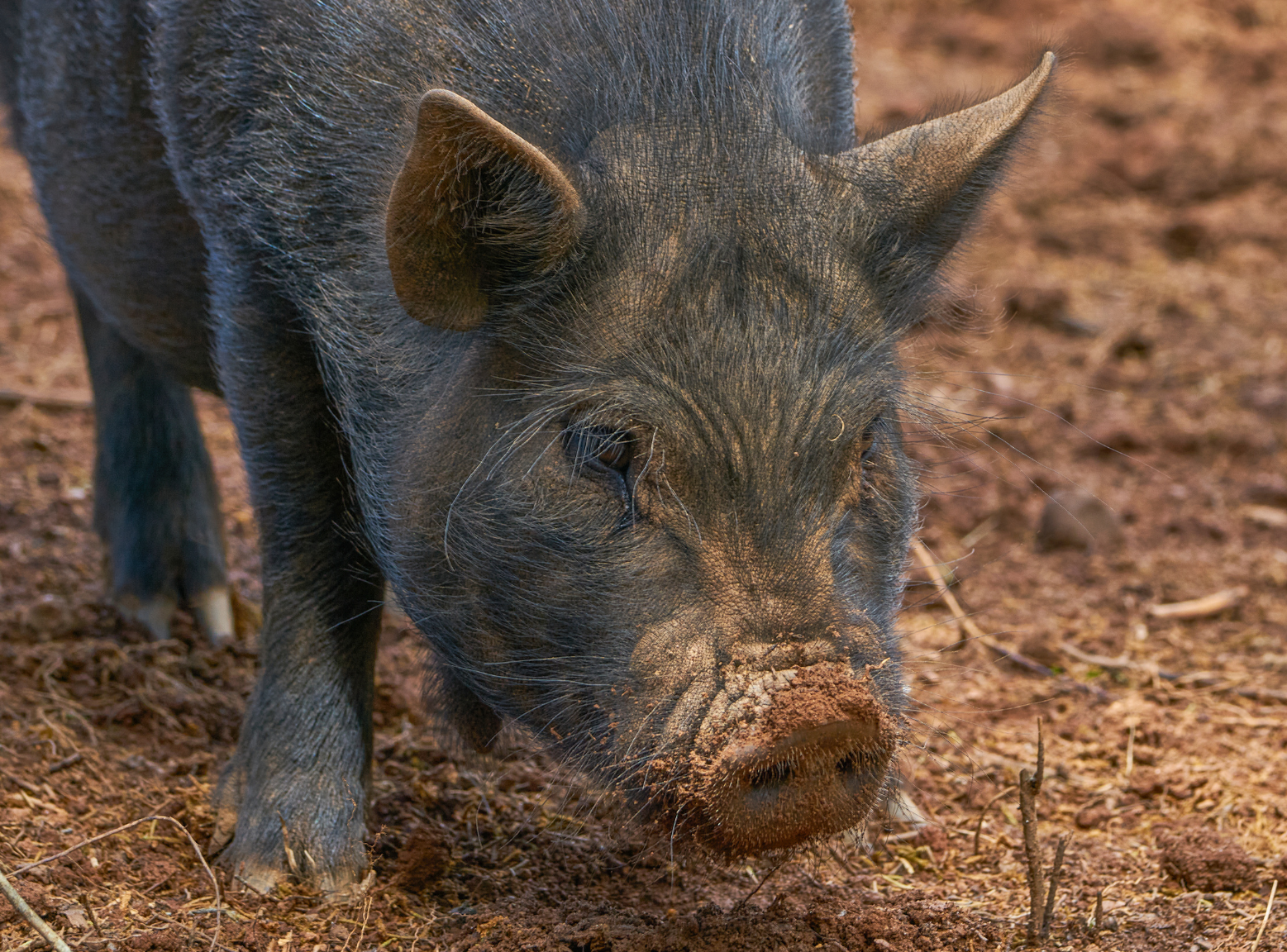
DOVER, Del. — Delaware has been experiencing a significant increase in potbellied pigs running at large in residential and rural areas, including on state lands. Running at large, these pigs pose a nuisance to landowners, increase the threat of establishing feral pig populations, damage natural resources, and risk carrying endemic diseases – such as salmonella or even swine flu – that can spread to both people and animals.
People selling potbellied pigs entice pet owners with marketing terms such as micro pigs, teacup pigs, mini pigs, pocket pigs, and pygmy pigs. New pet owners believe they will have a cute little piglet to love, but as these animals age, the pigs can grow quite large while becoming hard to handle and difficult to contain. Potbellied pigs can weigh between 70 to 200 pounds and can live upwards of 15 to 20 years.
Since 2016, there has been an increase in potbellied pigs running at large in the state. A significant contributor has been the unimpeded pipeline of pet pigs becoming strays. Owners who can no longer manage these animals are likely to relinquish ownership and allow them to roam.
As potbellied pigs are a non-native species, swift action will be taken to mitigate any threats they pose to Delaware lands, livestock, natural resources, and human health. The pigs will be dispatched immediately if they are found at large on state-owned lands, including state forests, state wildlife areas, and state parks. Due to the ability of potbellied pigs to reproduce at a very young age, the state must ensure that a feral pig population does not become established, which could rapidly lead to the spread of disease and property damage.
Male potbelly pigs can breed as early as eight weeks of age, and the females can become pregnant at three months. Owners are encouraged to spay or neuter their pet pigs to prevent unintended litters. In addition, neutering male potbellied pigs can help to decrease behavioral issues, including aggression and the innate need to roam when a sow or other animal is in heat.
Potbellied pigs found at large due to a constituent complaint will be assumed to be stray, and the Delaware Department of Agriculture will determine the disposition of such animals. Pet owners are encouraged to utilize visible animal identification, such as an ear tag, so if a potbellied pig is found by the public, it can be reunited with its owner.
Potbellied pigs can live indoors or outdoors, or a combination of both. However, when outdoors, potbellied pigs require a secure pen where they cannot escape and run at large. It is recommended that owners use hog panels available at local agriculture supply stores, along with wooden or metal t-supports. If the animals are not on a cement-floor pen, part of the fencing should be buried underground, so the pig does not root in the dirt, slip under the fence, and escape.
If you are a potbellied pig owner and need guidance on securing and housing your animal, spaying or neutering, or animal identification, contact the Delaware Department of Agriculture’s Poultry and Animal Health Section at 302-698-4561.
Original source can be found here.
ORGANIZATIONS IN THIS STORY
!RECEIVE ALERTS

 Alerts Sign-up
Alerts Sign-up